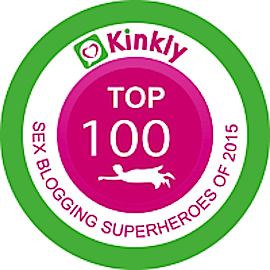As many of you know, I’m a diehard blogging fan. Approached well, it can broaden our readership, strengthen our writing, introduce us to fabulous friends, make us more appealing to industry pros and help us land freelance gigs. If you’re a blog-o-holic fellow fan, you’re probably nodding your head right now. Others of you, I suspect, are somewhat skeptical.
I led a blogging workshop at a conference recently and asked, “Who here has a blog?” Most every attendee raised a hand. When I prompted them to keep their hand up if they enjoy the process, all but one shot down.
I realize that not all aspects of writing are pleasurable, but I believe that many can be. I also believe that forcing ourselves to partake in optional activities we detest can work against us. Regardless, blogging isn’t for everyone.
We’re crazy-fortunate to be writers in a day rich with freedom and opportunity. The question isn’t if we’ll be published, but when and how. We also have a broad range of choices when it comes to book marketing, branding and the beloved author platform. (Note the sarcasm; I know few authors who jump up and down at the sound of the P-word.) I view “brand” simply as who we are—as people and writers, and “platform” as the stage and microphone we use to share ourselves and our work. The more we’re read, heard, seen and/or appreciated, the stronger our “stage,” “microphone” and audience become. And there’s no one or “right” way to enhance or utilize any of them.
When To Make Changes, Quit or Avoid Blogging
If you don’t enjoy blogging, you may want to consider tweaking your habits and approach. If you loathe it regardless, why do it? Hating blogging, but forcing ourselves to do it anyway, is a lot like following a tasteless diet and tedious exercise routine, in my opinion. It won’t stick, provide lasting results or prove worthwhile. We may even go bonkers in the process.
I’d also suggest not blogging, or seriously shifting your habits, if it’s taken priority over your primary writing—unless you’d prefer to build a blog in lieu of books. You may also be rockin’ your author platform without blogging, or detest the notion of even starting. While no one tool or medium works for everyone, it’s important that we present ourselves somewhere–preferably beyond our living rooms. If blogging isn’t your cup of novel-tea (ba-dump), I’d suggest the following:
5 Alternatives to Blogging for Author Platform Building
1. Rely on other social media platforms. I’ve heard Facebook and Twitter called micro-blogging, and for good reason. They, and other social media platforms, offer many of the same benefits blogging can—if we use them consistently, present ourselves authentically and avoid telemarketer “BUY MY STUFF!” techniques. (Thank goodness those don’t work. Blech.) If you’re unsure as to which platform to focus on, experimenting with a variety can help. For tips on using Google+ for building your platform, check out Marcy Kennedy’s post on Jane Friedman’s blog. For Twitter basics, InkyGirl’s free Writer’s Guide is groovy. To learn the benefits of Facebook pages versus personal profiles, check out Lisa Hall-Wilson’s post on Jami Gold’s blog.
2. Write guest posts for other blogs. Guest posts build content much the way personal blogs do, and introduce new readers to our voice and work. They can also make nice additions to our main author and social media sites. (If you’re on Pinterest, for example, create an interview/guest post board.) For best results, choose blogs you appear on wisely. There are loads of fantastic blogs out there—well-written, compelling sites with interactive readers and lofty readership. Countless others have lower-quality posts, very few followers and little interactivity. Before seeking or accepting a guest post opportunity, ask for demographics and stats, unless you have a good grasp of and respect for the blog’s content already. We can also learn a lot about a blog by skimming through posts, comments and social media shares.
3. Read, follow and interact with authors who do blog. Blogging isn’t the only way to engage in the blogging community, in which there is tremendous value for authors. (It’s one of the most supportive writing communities I feel we have access to.) Make sure you have a Gravatar profile, so that your photo and profile link accompany your comments when applicable, then seek out and read blogs that strike you. Sharing links to posts we find compelling on social media helps us, the post creator and readers who benefit from the links. When we share valuable content, we attract like-minded followers.
4. Contribute stories, articles and pitches to magazines, journals, contests and websites. Being findable on search engines and having plentiful online content are major blogging perks. We can get these same advantages by contributing stories and articles—paid or not—to print and online publications. (Exposure and experience are valuable “pay,” particularly in our early days.) Short stories can boost book sales, by serving as leverage during price-drop promotions and adding to our body of work. (A reader who loves your short story will be more likely to buy your books, and vice versa.) Entering writing contests can help instill deadlines—another perk of blogging. Winning brings us recognition, enhancing our reputation.
5. Write awesome book after awesome book, and team up with fantabulous reps and/or marketing gurus. I believe that high-quality work attracts and breeds success, regardless of what we do otherwise—and obviously, writing book after book is vital for all career-oriented writers. On occasion, a book does so well with readers or publishing pros, word-of-mouth (including others’ social media) and/or a powerful marketing force takes care of the whole shegang. If you can manage and enjoy that, kudos! Sadly, most of us aren’t so lucky. The harder we work, and the more high-quality work we produce, the better off we’ll be. Meanwhile, if we’re resistant to blogging and other social media, we best team up with qualified others who aren’t.
Speaking of blogging writers, a group of us are highlighting a special one today. Susie Lindau, a prolific blogger I’m honored to call friend, is facing breast cancer with courage, heart and humor. Please take a peek at her latest post, The Boob Report: Laughter is the Best Medicine, and you’ll see what I mean. ♥ She’ll inspire you, whether you’ve joined the blogosphere or not.
How do you feel about blogging? Any alternatives to add? What’s your preferred method of platform building, on or offline? Or would you rather hide away in a remote cabin, type-typing away? (We all have days like that!)








